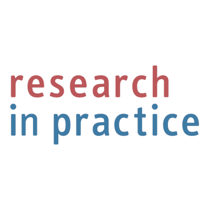Are you involved in a Local Safeguarding Children Board (LSCB), Local Safeguarding Partnership (LSP) or Multi-Agency Child Exploitation (MACE) panel across England and Wales? If so, we would like to hear from you.
Durham University, in collaboration with Research in Practice, the Association of Safeguarding Partners, and the Vulnerability Knowledge and Practice Programme (VKPP) is undertaking a research project on safeguarding children at risk of violence. The project is hosted by the National Centre for Violence Against Women and Girls and Public Protection (NCVPP) and has been funded by Youth Endowment Fund (YEF).
We want to learn about how LSCBs, LSPs and MACE panels (or local equivalents) are working to safeguard children at risk of extra-familial harm and child criminal exploitation. The study will inform YEF recommendations for the children’s services sector on how to reduce violence amongst children and young people.
We would like to hear from leaders and professionals who regularly take part in LSCBs, LSPs and MACE panels (or local equivalents) across:
- local authorities
- police
- education
- health
- youth and community sector.
Sector specific workshops will be held on the following dates.
- Independent scrutineers - 3 November, 16:00-17:30
- Local authority - 4 November, 10:30-12:00
- Education - 4 November, 16:00-17:30
- Health - 5 November, 12:00-13:30
- Police - 6 November, 12:00-13:30
- Youth and community - 7 November, 10:30-12:00
- Youth and community sector - 28 October, 15:30-17:00
- Police - 3 November, 9:30-11:00
- Local authority - 3 November, 13:30-14:30
- Education and health - 6 November, 16:00-17:30
Please only attend the focus group for your sector. If your role means you are part of an LSCB or LSPs and attend MACE (or local equivalent) you may request a place at either session. Places will be allocated to ensure a range of regions are represented and we will make contact with everyone to let you know if you have been allocated a space.
By participating in this online session by Research in Practice you will help us to better understand current ways of working, and the barriers and facilitators of effective practice and offer insights for practice and system change.

